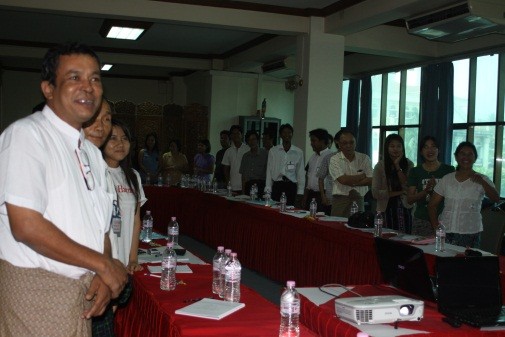
Building trust and leadership among Burma’s nascent civil society is key to a lasting, peaceful transition. But after decades of repression and division, those leading Burma’s reforms often face personal and professional obstacles affecting their ability to bridge gaps and forge alliances.
To be effective advocates for peace, these civil society leaders need to better understand how personal perceptions can affect professional relationships, and how these relationships can steer Burma’s political reform.
In April 2013, USAID, through its Office of Transition Initiatives, recognized the need to enhance the ability of local partners in Burma to lead and serve their organizations and communities more effectively. USAID partnered with the Local Resource Center to convene a five-day personal empowerment, success and leadership training called OPERACY for 50 individuals from civil society organizations around the country.
The interactive training, taught to thousands of people around Southeast Asia, provides individuals with the tools to understand success and failure, develop productive habits, and be motivational leaders. The training helps participants to cross obstacles stemming from ingrained age, gender, social, religious and cultural barriers in their communities.
Burmese participants committed to use the new approaches in their respective communities and organizations.
“The training makes me motivated to change the way I think and work. I will provide this type of training to young people in my community,” said one participant*.
“[The training] felt very useful because the contents are applicable to my daily life,” said another.
As Burma continues its challenging transition process, these civil society participants believe that the tools they gained will allow them to build trust and develop their organizations to do more effective work.
“I learned how to live together with diversity in an organization,” noted another attendee.
These responsible leaders are now able to understand and bridge ethnic, religious and social gaps in their communities—skills crucial to a peaceful and unified Burma.
*Names of participants withheld to protect privacy.







Comment
Make a general inquiry or suggest an improvement.